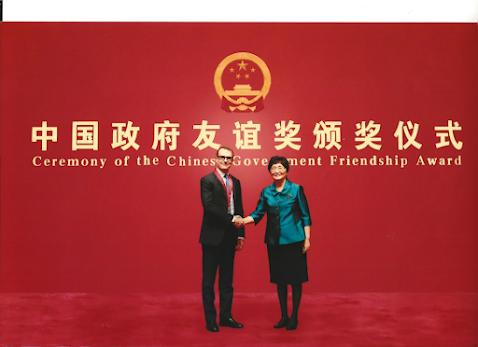INC-5 Closing Statements by Representatives of Countries Around the World | CBCGDF INC-5 Delegation Reports
From November 25 to December 1, 2024, the fifth session of the Intergovernmental Negotiating Committee for a Legally Binding International Instrument on Plastic Pollution, including Plastic Pollution in the Marine Environment" (INC-5) was held in Busan, South Korea. As an observer to the INC-5, in order to actively participate in the global plastic pollution governance, the International Department of China Biodiversity Conservation and Green Development Foundation (CBCGDF) has sent the CBCGDF INC-5 delegation of 5 people to attend on site the meeting in Busan, South Korea.
At 20:30 local time on December 1, 2024, after a series of difficult negotiations and delays, the INC Chair announced the adjournment of INC-5.1 held in Busan, South Korea. From INC-5 to INC-5.1, it was undoubtedly a setback from the perspective of negotiations, because countries around the world did not meet the UNEA/5/14 mandate to complete a legally binding international instrument by the end of 2024 to address the global plastic pollution crisis.
This result is inevitably disappointing, and representatives of participating countries expressed their concerns in their speeches at the meeting. The setback comes from the irreconcilable differences. In the five meetings, countries were substantially divided into two groups based on their national conditions - an ambitious alliance (HAC) that brings together nearly 100 countries and a group of like-minded countries such as the Gulf countries, Iran, Russia and other oil-producing countries.
The representative of Panama expressed anger at the failure of INC-5.1. He said that this transnational group, which covers European countries in the global north and many developing countries in the global south, strongly demands an ambitious treaty with environmental justice and fairness at its core. He advocated for high environmental standards to deal with plastic pollution, including full life cycle management; stressed that the treaty must cover health protection, sustainable consumption and production, as well as monitoring and enforcement mechanisms; and called for strengthening the treaty's education and awareness-raising content.
Representatives from Saudi Arabia and Russia, from the group of like-minded countries, stressed that the negotiations on the treaty must be flexible and based on consensus, and that negotiations should be conducted on a pragmatic and balanced basis, avoiding unrealistic goals. They strongly opposed expanding the scope of the treaty to include plastic production issues, and believed that the focus should be on plastic pollution itself. They proposed a global standard - the principle of consensus, which should respect national sovereignty and avoid a "one-size-fits-all" strategy, simply passing an unreachable treaty through voting. They also stressed that the treaty should balance environmental goals with economic realities, especially for developing countries and countries with transition economies.
In addition to these two major transnational groups, traditional regional groups also expressed voices from all regions of the world. The EU strongly called for a legally binding international treaty to address the full life cycle of plastics, including production, design and waste management. The EU supports the use of a voting mechanism when consensus cannot be reached to ensure the agreement is reached and implemented. The representative from Ghana, on behalf of the African Union, stressed the serious impact of plastic pollution on African countries, despite its low proportion of plastic production, and called for the establishment of a technical and financial support mechanism to help developing countries fulfill their treaty obligations.
Although the negotiations are deadlocked, the adjournment of INC-5.1 does not mean the end, but a new starting point for the world to work together to address the plastic pollution crisis. In future consultations, how to find a balance between ambition and pragmatism, and between global and national interests will be the key to whether the international community can reach a binding agreement.
(This article is compiled from the work records of the delegates of the CBCGDF INC-5 delegation, and is only for information.)
Original Chinese article:https://mp.weixin.qq.com/s/s8m7PSWOxBFIdYafqjZ1BQ
Translator: Daisy
Reviewed by Sara
Editor: Daisy
Contact: v10@cbcgdf.org; +8617319454776
Do you know? We rely on crowdfunding and donations. You have the opportunity to help an international movement to advance biodiversity conservation. Donate TODAY to power up the movement to make it a better world for all life.
Donation(501C3)Paypal: intl@wbag.org
https://www.paypal.com/donate?hosted_button_id=2EYYJJZ8CGPLE







Comments
Post a Comment